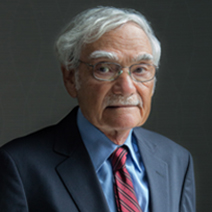Second Department Reverses a Plaintiff’s Summary Judgment Award under Labor Law 240(1)
By: Robert P. Valletti, Esq.
As all (if not, then hopefully MOST) personal injury attorneys who handle cases alleging violations of the plaintiff-friendly Labor Law § 240(1) know, to impose liability pursuant to Labor Law § 240(1), there must be a violation of the statute and that violation must be a proximate cause of the plaintiff’s injuries. See Blake v. Neighborhood Hous. Svc’s of NYC. Furthermore, to win summary judgment on liability, the plaintiff must establish that there is no genuine dispute of material facts that would permit a reasonable individual to reach a contrary conclusion that violation of the statute occurred and that said violation was a proximate cause of the plaintiff’s injuries.
Nunez v. City of New York is a recent example of a plaintiff’s failure to proffer the requisite amound of evidence to win an affirmative summary judgment motion. In Nunez v. City of New York, the defendants successfully appealed an order from Judge Schmidt in Kings County Supreme Court granting the plaintiff’s motion for summary judgment on the issue of liability on the cause of action alleging a violation of Labor Law § 240(1).
The plaintiff in Nunez sustained injuries when he fell from a ladder during an asbestos-removal project in a New York City public school. Judge Schmidt granted plaintiff’s motion for summary judgment under Labor Law § 240(1) finding that the ladder provided to the plaintiff did not afford him proper protection while working on the site, mainly relying on the sworn 50-h transcript annexed to the plaintiff’s motion in support of his bid for summary judgment.
The Appellate Division, however, found a question of fact in the set up of the ladder. Aside the from 50-h transcript in support, the plaintiff also submitted an incident report and unsworn statement of a co-worker and the plaintiff’s supervisor which indicated that the ladder was in a closed position and propped up against the wall at the time of the accident.
The Appellate Division found these “factually irreconcilable accounts” to constitute the plaintiff’s failure to eliminate triable issues of fact as to whether the ladder provided proper protection as required under New York Labor Law 240(1). The Appellate Division also concluded that there is a question of fact as to whether the plaintiff was the sole proximate cause of his own injuries if he had indeed set up the ladder solely by himself in the manner depicted in the unsworn statements.
If you have been injured from a fall from a ladder or other fall from height while working at a construction site, call the Construction Site Accident Attorneys at 1-888-GINARTE today. You may be entitled to money for your injuries. We have 25 experienced Construction Site Accident attorneys ready to get started on your case today. Put our 150 years of combined experience to work for you!













